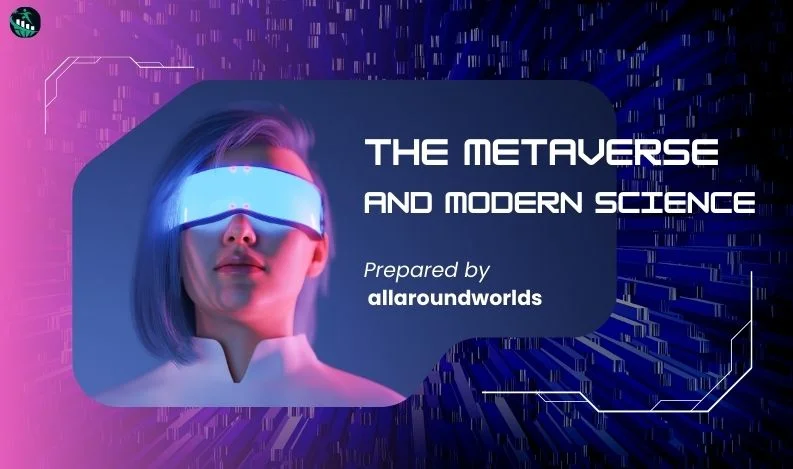
The Metaverse and Modern Science: How Virtual Worlds are Shaping Real-World Research
The rapid advancement of digital technology has ushered in the era of the Metaverse, a collective virtual shared space created by the convergence of virtually enhanced physical reality and persistent virtual spaces. This platform is not just transforming social interactions and entertainment; it's poised to revolutionize scientific inquiry. The Metaverse offers a unique environment where physical limitations are transcended, allowing scientists to experiment, visualize, and collaborate in ways previously confined to the imagination. This blog explores how the Metaverse is reshaping scientific research, enhancing data interaction, and fostering global collaboration in the scientific community.
Understanding the Metaverse in Science
Defining the Metaverse
The Metaverse is an integrated network of 3D virtual worlds that are interactive, immersive, and persistently online. It is enabled by technologies such as virtual reality (VR), augmented reality (AR), and artificial intelligence (AI), which collectively create a dynamic and responsive environment. This digital universe allows for a seamless blend of physical and virtual interactions, making it an ideal platform for scientific exploration and education.
Technologies Driving Scientific Applications
Virtual Reality (VR): VR technology immerses users completely in a digital environment. In scientific settings, VR is used for visualizing complex molecular structures in three dimensions, creating realistic simulations of astronomical phenomena, and rehearsing intricate surgical procedures in a risk-free environment.
Augmented Reality (AR): AR technology overlays digital information onto the real world, enhancing the user's perception of reality. Scientists use AR for real-time data visualization during experiments or for augmenting physical lab environments with interactive, data-rich holograms.
Artificial Intelligence (AI): AI plays a crucial role in managing and analyzing the vast amounts of data generated by virtual simulations. It also aids in modeling complex systems that are too intricate for traditional computational methods, enhancing both the speed and accuracy of scientific research.
Impact of the Metaverse on Various Scientific Fields
The Metaverse is finding applications across a broad range of scientific disciplines, demonstrating its versatility and capacity to enhance traditional research methodologies.
Astronomy and Space Exploration
In the field of astronomy, the Metaverse allows for the simulation of environments that are beyond physical reach. Researchers can navigate through reconstructions of distant galaxies or witness the life cycle of stars in immersive VR settings. This not only makes the research more intuitive but also allows for real-time manipulation of astronomical data to test hypotheses instantly.
Medical and Biological Research
The medical field benefits enormously from Metaverse technologies. Detailed VR simulations enable medical students and professionals to practice surgeries and diagnostic procedures without the ethical implications and costs associated with using real patients. For biological research, the Metaverse provides a virtual ecosystem where researchers can manipulate DNA sequences and proteins, watch the interactions of biochemical processes, and test the effects of pharmaceuticals in a controlled yet realistic setting.
Environmental Science and Climate Research
Environmental scientists use the Metaverse to create complex simulations of Earth's ecosystems to study the impact of human activities on climate change. These simulations can model decades of environmental transformations under various scenarios, providing valuable insights into the future effects of climate policies. Moreover, this technology allows for the visualization of abstract concepts like carbon cycling and ecosystem interdependencies, making them more comprehensible and tangible.
Challenges and Ethical Considerations
As the scientific community ventures deeper into the Metaverse, several challenges and ethical considerations emerge.
Technical Limitations
The accuracy of simulations, the need for high-performance computing resources, and the integration of real-world data into virtual systems are significant technical challenges. Additionally, creating user-friendly interfaces that can be used efficiently by scientists without extensive training in virtual reality technologies remains an ongoing concern.
Data Privacy and Security
The extensive data required to create realistic simulations in the Metaverse raises concerns about data privacy and security. Ensuring the confidentiality and integrity of research data, particularly when it involves sensitive or proprietary information, is critical.
Ethical Implications
The potential for misuse of immersive technology for manipulating perceptions or creating biased datasets calls for stringent ethical guidelines. The scientific community must address these concerns by establishing clear standards for conduct and transparency in research within the Metaverse.
The Future of Science in the Metaverse
As technology evolves, the Metaverse is set to become an increasingly integral part of scientific research. Its potential for fostering global collaboration, accelerating discovery processes, and democratizing access to scientific education promises to redefine the boundaries of what is possible in research and development.
Collaborative Ventures
The Metaverse provides a platform where scientists from around the world can collaborate in real-time, regardless of physical location. This can lead to more diverse scientific teams and a more inclusive approach to research, encompassing a wide range of perspectives and expertise.
Enhanced Education and Outreach
The educational potential of the Metaverse is vast, with the ability to engage students and the public in scientific exploration through interactive and immersive experiences. This not only enhances learning and retention but also sparks curiosity and inspiration among future generations of scientists.
Conclusion
The integration of the Metaverse into the realm of science is transforming traditional research paradigms. By enabling more immersive, intuitive, and interactive scientific endeavors, the Metaverse is not just reshaping how research is conducted; it is expanding the very frontiers of human knowledge. As we continue to explore this convergence of technology and science, the possibilities for what we can achieve are boundless.
Also Read:-



Recent Comments: